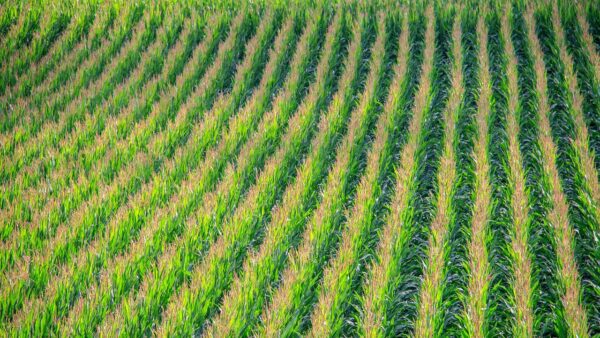The future for corn farmers and the seed industry is—as it has always been—intertwined. From my perspective, we both have opportunities and challenges on the horizon.
Strong competition within the seed industry continues to benefit corn farmers across the county. Spurring each other along, competition has fostered innovation, leading to the wide array of varieties now available to help farmers maximize their yield potential in a variety of circumstances. With many more traits in the pipeline, the work done by the seed industry will help corn farmers meet growing demand in an ever-changing environment well into the future.
Corn farmers understand that seed providers are moving these traits to market as quickly as resources and government regulations allow. While this continuous progress benefits those with new seed products by allowing them to begin recouping their significant research investment, it also benefits farmers who need these valuable tools to better deal with the difficulties that they face in the field. Corn farmers in particular have demonstrated time and time again their eagerness for innovative seed technologies through their rapid adoption of cutting-edge products and practices that grow not only a stronger crop, but also a stronger future for U.S. agriculture.
Over the past few years, groups strongly opposed to biotechnology in agriculture—strongly opposed to these valuable tools upon which farmers rely—have become more vocal in their attacks. Corn farmers, along with a broad coalition of farmers and ranchers, understand the potential impact this movement could have should their fear-based propaganda be allowed to dominate the consumer conversation. We have acted upon this understanding. Through programs such as CommonGround and the U.S. Farmers and Ranchers Alliance, we stepped up to the plate to provide real, credible information that assuages consumer fears about biotechnology. We have also worked with a broad array of partners to spread this understanding with those influential in the academic, policy and ag fields abroad.
Acceptance of biotechnology abroad continues to grow in importance. Coming out of the drought of 2012, corn farmers in the U.S. will produce a record 13.98 billion bushels of corn in 2013 should Department of Agriculture projections hold true. Looking at this amazing production potential, corn farmers recognize the incredible importance of opening and maintaining export markets that will provide an additional outlet for this abundance and support corn prices by increasing demand.
Growing export markets requires not only educating potential customers on biotechnology, but also working to promote trade agreements that remove economic barriers. Putting in place trade policies that open markets benefits both U.S. corn farmers and the seed industry. To maximize our trade relationships, we must also have synchronous regulatory policies that allow for a smooth flow of grain from U.S. fields to consumers worldwide.
Again, NCGA and U.S. corn farmers are working with the American Soybean Association, the American Seed Trade Association, and our allies across the value chain in the formation of the U.S. Biotech Crops Alliance. This group, which is the culmination of years of discussions, works to establish improved, more transparent communication regarding issues that potentially threaten the development, production, or delivery of products derived from modern crop biotechnology. It provides an ongoing dialogue that ensures the entire corn and soy value chain, from the seed industry to exporters, are working together to get new traits in farmers’ fields with an eye toward maintaining markets for those products abroad.
Additionally, NCGA has worked with organizations representing corn farmers in Argentina and Brazil to form MAIZALL. This new alliance will build upon the shared challenges of corn farmers across the Americas to find areas where working together will yield stronger results than completion might. The most prominent issue the organization will tackle in upcoming activities is presenting a unified voice in helping to educate our international customers about the benefits that biotechnology offers.
Looking forward, corn farmers have many reasons to feel optimistic. We have taken on a proactive role in building our own future. We feel confident in our seed industry partners’ ability and willingness to provide us with new, innovative tools that will meet tomorrow’s challenges. Yet, at the same time, we face a great deal of uncertainty.
Without the final passage of a new, five-year Farm Bill, corn farmers are forced to make decisions about their livelihoods without the certainty that a farm program safety net fully written into law provides. Each and every choice we make regarding planting must now be based on guesses, hunches and logical assumptions instead of on the firm knowledge a Farm Bill provides. We saw firsthand the importance of a farm safety net during the drought of 2012. We need reassurance from our government that it will stand by farmers in the future as well.
Martin Barbre, a corn grower in Illinois, serves as the president of the Corn Board of the National Corn Growers Association, a farmer-led trade association with offices in St. Louis and Washington, D.C. A farmer for more than three decades, Barbre joined NCGA in 1988. He is a partner, along with his son Brandon, in Chestin Farms, where he grows corn, white food grade corn, soybeans, seed soybeans, wheat, grain sorghum and alfalfa.












